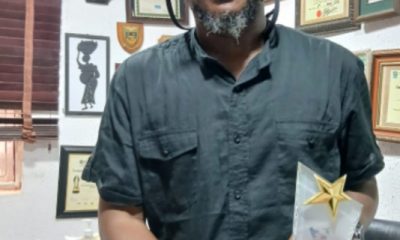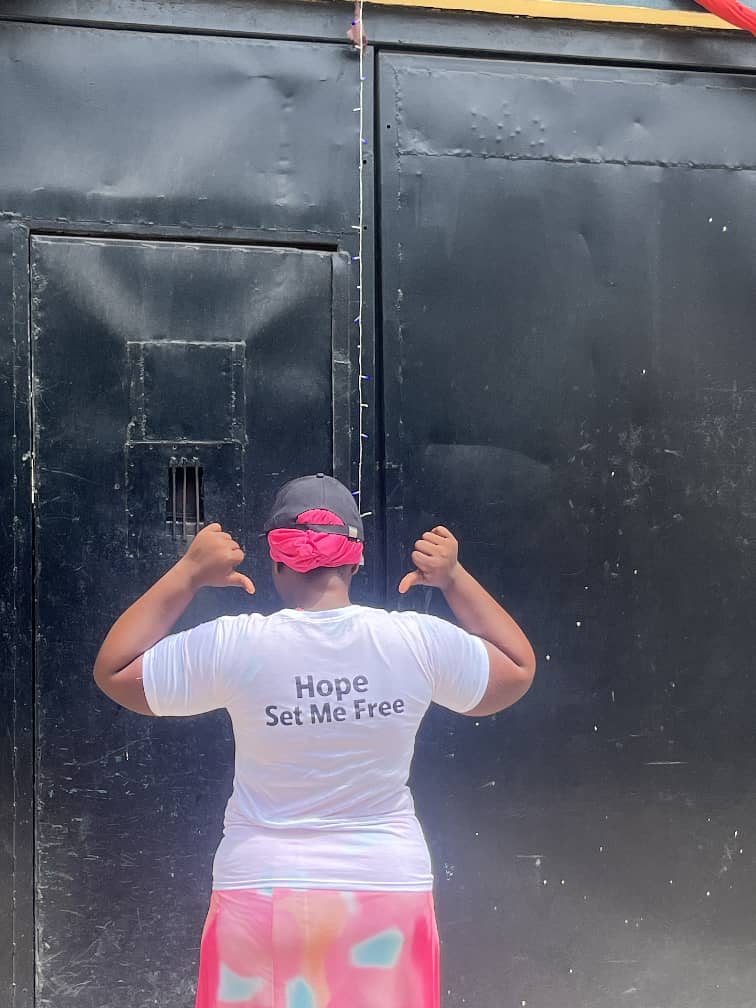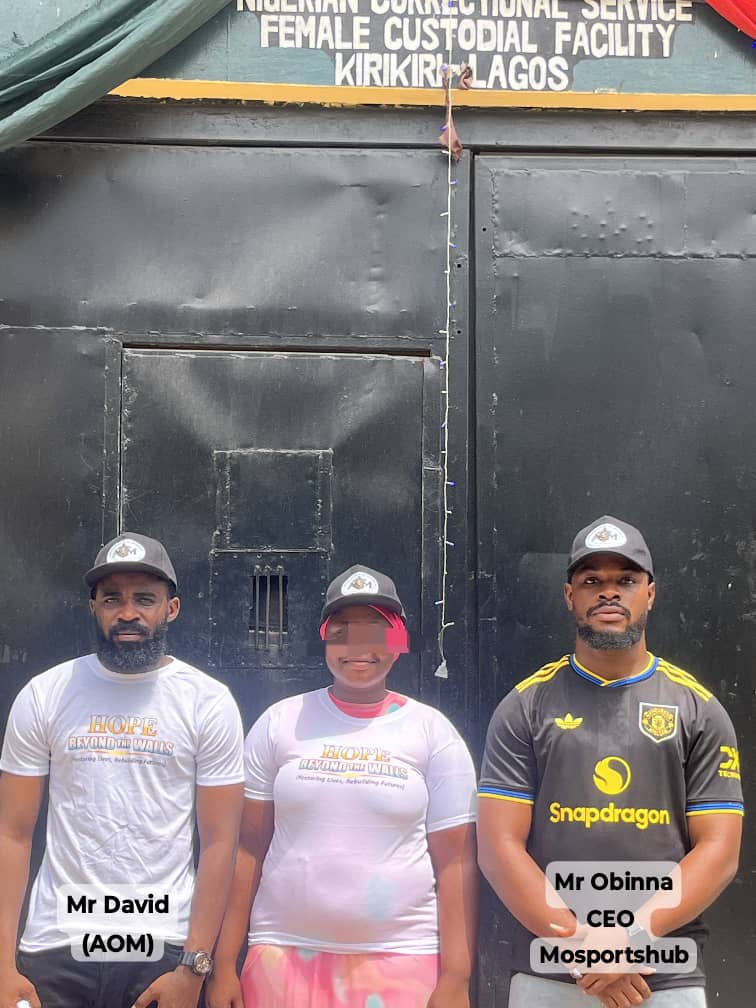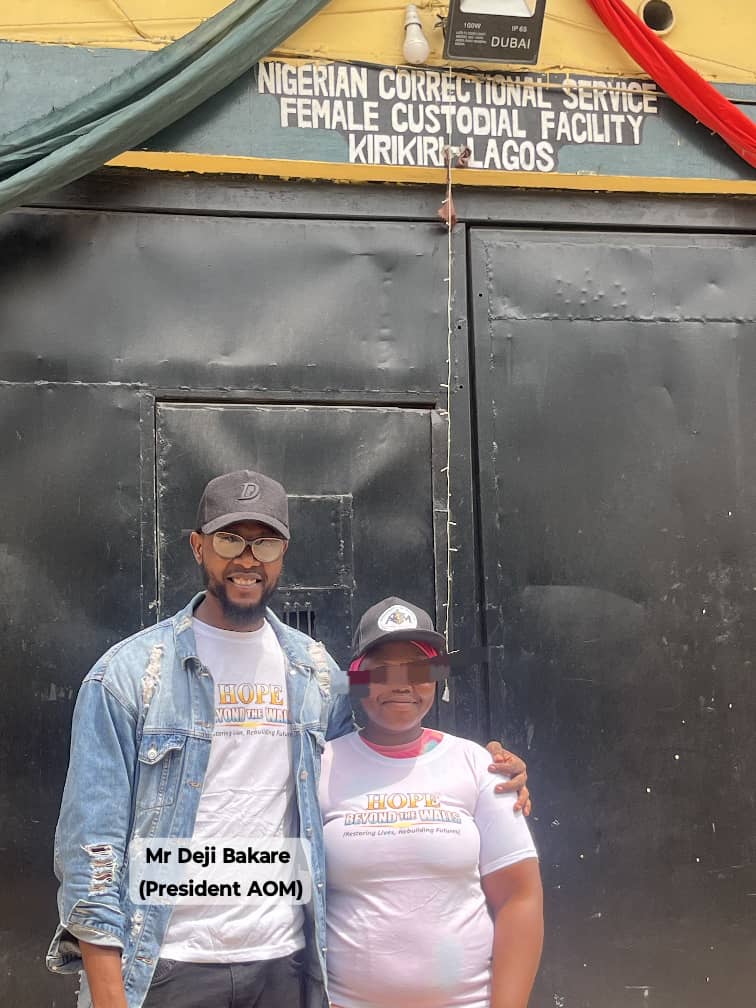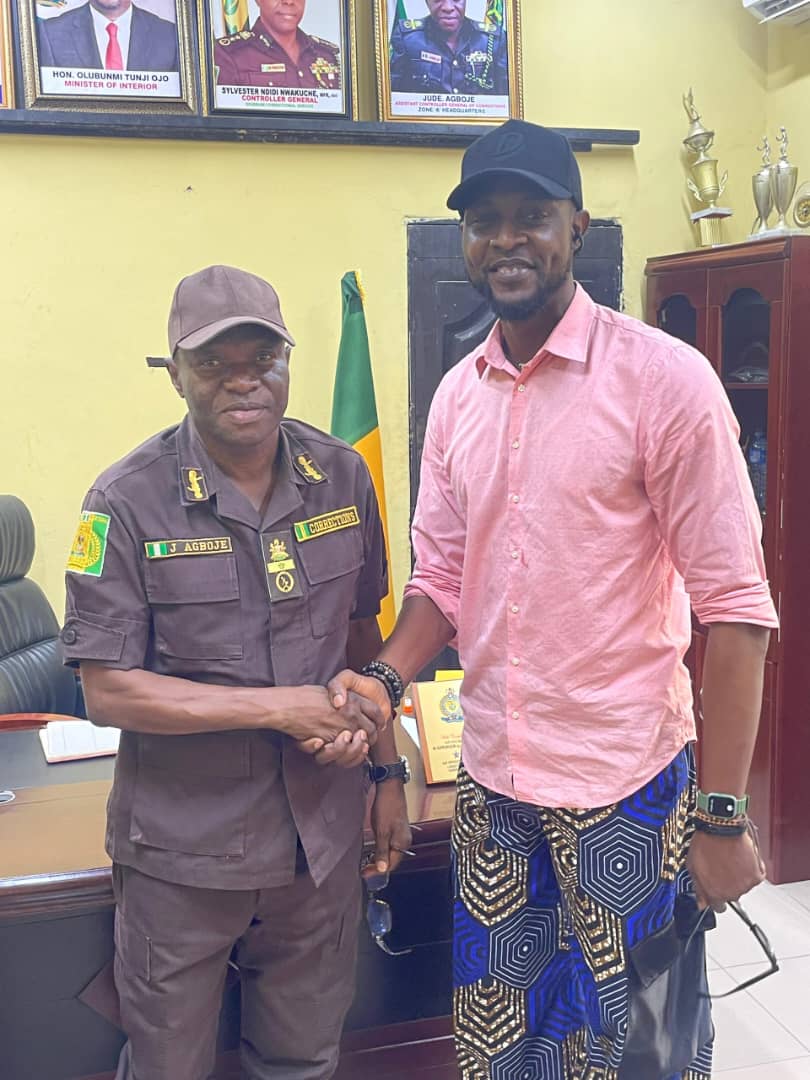society
National Park Service committed to protecting Nigeria’s ecological integrity
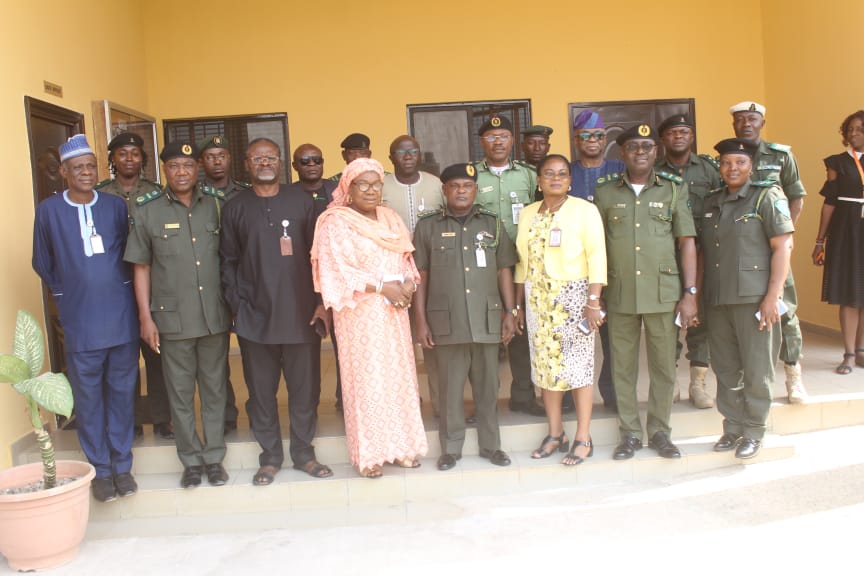
National Park Service says its protecting the ecological integrity of the Nation and over the years remained resolute and committed to preserving these unique heritages in the various ecosystems.
Dr Ibrahim Goni, the Conservator General, National Park Service said this while on courtesy visit to the Director-General, Nigerian Television Authority (NTA) on Tuesday in Abuja.
Goni noted that the service is also working towards increasing the areas under protection through the establishment of additional National Parks.
“We are at the forefront in the mitigation of climate change, drought and desertification in the country and also play a pivotal role in the amelioration of ravaging erosion and floods.
“Climate and nature are intricately linked, so we won’t be able to solve the global loss of nature without solving the climate crisis.
“In turn, when we restore nature, we create healthy ecosystems which locks away more carbon and helps stabilise our climate.
He said the service has stepped up action, and will continue to step up plans, by bringing more actors to the table to save Nigeria from the imminent effects of climate change as well as safeguard the ecosystem.
” We are here to solicit your support in educating the public on the need to promote the service for the health of the Nation.
“Apart from the climate change mitigation, our dream is to turn the seven national parks into a tourism hub, and we want every Nigerian to join hands with the service to make our parks greater in 2020.
“The ongoing revamp at the parks across the country is to improve the quality of services and we will not relent in the efforts to keep improving the fortunes of the parks”.
He said that the service rhave put in a lot of effort to turn around the parks for Ecotourism and also ensure maximum security for our tourists, as well as to preserve and conserve the nation’s natural resources.
Our growing collaboration with you is to advertise Nigeria park to the world which is a key part of our agenda.
Our visit today is to encourage Nigerians to think of contributions they could make that will help mitigate the effect of climate change and to also increase their patronage of our parks.
The present level of commitment and awareness to conservation and preservation of our national heritage are very low so I urge patriotic Nigerians to join hands with the Service in taking our parks to global standards to be able to effectively compete with its counterparts around the world.
“Collective effort remains the panacea for dealing with the menace of climate change.
We must make conscious and concerted effort to safeguard our environment and make it safer and healthier for all.
We must join hands and speak with one voice in order to build the nation of our dream.
Patronising the parks will go a long way to help develop them to acceptable global standards.
We are working to preserve and protect the nation’s natural heritage and the cultural edifices that memorialise them across generations, and if we don’t join hands to preserve them, a lot of them could become extinct.
All our parks have facilities that will make visitors comfortable.
Mrs Fatima Bada, the Executive Director Finance, who represented Alhaji Yakubu Muhammed, the D-G of NTA promised to give the service all the necessary support to achieve its mandate.
” You have come to the right place and your efforts of passing your messages to the public will be supported by us.
She advised the service to work together with the News department to be able to get the maximum benefit
society
Viral “Chat With God” Claim Targeting Kenyan Prophet David Owuor Proven False

Viral “Chat With God” Claim Targeting Kenyan Prophet David Owuor Proven False
By George Omagbemi Sylvester, SaharaWeeklyNG
“Viral screenshot sparks national controversy as the Ministry of Repentance and Holiness dismisses fabricated “divine” WhatsApp exchange, raising urgent questions about faith, digital misinformation, and religious accountability in Kenya.”
A sensational social media claim that Kenyan evangelist Prophet Dr. David Owuor displayed a WhatsApp conversation between himself and God has been definitively debunked as misinformation, sparking national debate over digital misinformation, religious authority and faith-based claims in Kenya.
On February 18–19, 2026, an image purporting to show a WhatsApp exchange between a deity and Prophet Owuor circulated widely on Twitter, Facebook, WhatsApp groups and TikTok. The screenshot, allegedly shared during one of his sermons, was interpreted by many as illustrating unprecedented direct communication with the divine delivered through a mainstream messaging platform; a claim that, if true, would have broken new ground in how religious revelation is understood in contemporary society.
However, this narrative quickly unraveled. Owuor’s Ministry of Repentance and Holiness issued an unequivocal public statement calling the image “fabricated, baseless and malicious,” emphasizing that he has never communicated with God through WhatsApp and has not displayed any such digital conversation to congregants. The ministry urged the public and believers to disregard and stop sharing the image.
Independent analysis of the screenshot further undermined its credibility: timestamps in the image were internally inconsistent and the so-called exchange contained chronological impossibilities; clear indicators of digital fabrication rather than an authentic conversation.
This hoax coincides with rising scrutiny of Owuor’s ministry. Earlier in February 2026, national broadcaster TV47 aired an investigative report titled “Divine or Deceptive”, which examined alleged “miracle healing” claims associated with Owuor’s crusades, including assertions of curing HIV and other chronic illnesses. Portions of that investigation suggested some medical documentation linked to followers’ health outcomes were fraudulent or misleading, intensifying debate over the intersection of faith and public health.
Credible faith leaders have weighed in on the broader context. Elias Otieno, chairperson of the National Council of Churches of Kenya (NCCK), recently urged that “no religious leader should replace God or undermine medicine,” affirming a widely accepted Christian understanding that divine healing does not supplant established medical practice. He warned against unverified miracle claims that may endanger lives if believers forego medical treatment.
Renowned communications scholar Professor Pippa Norris has noted that in digital societies, “religious authority is increasingly contested in the public sphere,” and misinformation (intentional or accidental) can quickly erode trust in both religious and secular institutions. Such dynamics underscore the importance of rigorous fact-checking and responsible communication, especially when claims intersect profoundly with personal belief and public well-being.
In sum, the viral WhatsApp chat narrative was not a revelation from the divine but a striking example of how misinformation can exploit reverence for religious figures. Owuor’s swift repudiation of the false claim and broader commentary from established church bodies, underline the ongoing challenge of balancing deeply personal faith experiences with the evidence-based scrutiny necessary in a digitally connected world.
society
HOPE BEYOND THE WALLS 2026: ASSOCIATION OF MODELS SUCCESSFULLY SECURES RELEASE OF AN INMATE, CALLS FOR CONTINUED SUPPORT

HOPE BEYOND THE WALLS 2026: ASSOCIATION OF MODELS SUCCESSFULLY SECURES RELEASE OF AN INMATE, CALLS FOR CONTINUED SUPPORT
The Association of Models (AOMNGO) proudly announces the successful completion of the first edition of Hope Beyond the Walls 2026, a humanitarian initiative dedicated to restoring hope and freedom to deserving inmates.
Despite enormous challenges, financial pressure, emotional strain, and operational stress, the organization remained committed to its mission. Through perseverance, faith, and collective support, one inmate has successfully regained freedom a powerful reminder that hope is stronger than circumstance.
This milestone did not come easily.
Behind the scenes were weeks of coordination, advocacy, fundraising, documentation, and intense engagement. There were moments of uncertainty, but the determination to give someone a second chance kept the vision alive.
Today, the Association of Models gives heartfelt appreciation to all partners and sponsors, both locally and internationally, who stood with us mentally, financially, morally, and physically.
Special Recognition and Appreciation To:
Correctional Service Zonal Headquarters Zone A Ikoyi
Esan Dele
Ololade Bakare
Ify
Kweme
Taiwo & Kehinde Solagbade
Segun
Mr David Olayiwola
Mr David Alabi
PPF Zion International
OlasGlam International
Razor
Mr Obinna
Mr Dele Bakare (VOB International)
Tawio Bakare
Kehinde Bakare
Hannah Bakare
Mrs Doyin Adeyemi
Shade Daniel
Mr Seyi United States
Toxan Global Enterprises Prison
Adeleke Otejo
Favour
Yetty Mama
Loko Tobi Jeannette
MOSES OLUWATOSIN OKIKIADE
Moses Okikiade
(Provenience Enterprise)
We also acknowledge the numerous businesses and private supporters whose names may not be individually mentioned but whose contributions were instrumental in achieving this success.
Your generosity made freedom possible.
A CALL TO ACTION
Hope Beyond the Walls is not a one-time event. It is a movement.
There are still many deserving inmates waiting for a second chance individuals who simply need financial assistance, legal support, and advocacy to reunite with their families and rebuild their lives.
The Association of Models is therefore calling on:
Corporate organizations
Local and international sponsors
Philanthropists
Faith-based organizations
Community leaders
Individuals with a heart for impact
to partner with us.
Our vision is clear:
To secure the release of inmates regularly monthly, quarterly, or during special intervention periods through structured support and transparent collaboration.
HOW TO SUPPORT
Interested partners and supporters can reach out via
Social Media: Official Handles Hope In Motion
Donations and sponsorship inquiries are welcome.
Together, we can turn difficult stories into testimonies of restoration.
ABOUT AOMNGO
The Association of Models (AOMNGO) is a humanitarian driven organization committed to advocacy, empowerment, and social impact. Through projects like Hope Beyond the Walls, the organization works tirelessly to restore dignity and create opportunities for individuals seeking a second chance.
“When we come together, walls fall and hope rises.”
For media interviews, partnerships, and sponsorship discussions, please contact the Association of Models directly.
society
SENATOR ADEOLA YAYI REGISTERS 4000 JAMB CANDIDATES
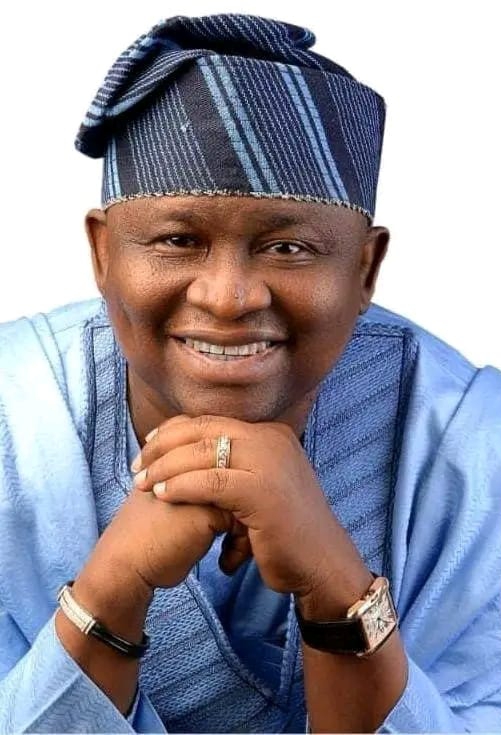
SENATOR ADEOLA YAYI REGISTERS 4000 JAMB CANDIDATES
In continuation of his educational support initiatives and following established tradition, Senator Solomon Adeola (APC,Ogun West) has successfully paid for and enrolled 4000 indigent students for the 2026 Joint Admission Matriculation Board(JAMB) examination.
According to a release e-signed and made available to members of the League of Yewa-Awori Media Practitioners (LOYAMP) by High Chief Kayode Odunaro, Media Adviser to Senator Adeola and shared with (your mediu), the programme financed by the senator under the “SEN YAYI FREE JAMB 2026” ended on Saturday , February 21, 2026, with a total of 4000 candidates successfully enrolled with their PINs provided.
Commenting on the success of the programme, Senator Adeola said the programme is another leg of his personal educational empowerment for indigent but brilliant citizens preparatory to his scholarship and bursary facilitation for tertiary education institutions’ students.
“As far as I can help it, none of our children will miss educational opportunities arising out of adverse economic predicament of their parents or guardians”, he stated.
Successful candidates cut across all the three senatorial districts of Ogun State with 2183 coming from Ogun West, 1358 coming from Ogun Central and 418 from Ogun East.
Some of the candidates that applied and are yet to get their PINs due wrong information supplied in their profiles and being underage as discovered by JAMB and other reasons are being further assisted to see the possibility of getting their PINs.
The Free JAMB programme of the Senator that has been running for years is well received by appreciative beneficiaries and their parents.
Alhaji Suara Adeyemi from Ipokia Local Government whose daughter successfully got her PIN in the programme said the Senator’s gesture was a welcome financial relief for his family at this period after payment of numerous school fees of other siblings of the beneficiary seeking admission to higher institution.
Also posting on the social media handle of the Senator, a beneficiary Mr. Henry Olaitan, from Odeda LGA said that he would have missed doing the entry examination as his guardian cannot afford the fees for himself and two of his children.
-

 celebrity radar - gossips6 months ago
celebrity radar - gossips6 months agoWhy Babangida’s Hilltop Home Became Nigeria’s Political “Mecca”
-

 society6 months ago
society6 months agoPower is a Loan, Not a Possession: The Sacred Duty of Planting People
-

 society5 months ago
society5 months agoReligion: Africa’s Oldest Weapon of Enslavement and the Forgotten Truth
-

 news6 months ago
news6 months agoTHE APPOINTMENT OF WASIU AYINDE BY THE FEDERAL GOVERNMENT AS AN AMBASSADOR SOUNDS EMBARRASSING






